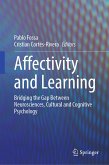This volume is comprised of contributions to the 67th Nebraska Symposium on Motivation, which brought together various research disciplines such as psychology, education, health sciences, natural resources, environmental studies to investigate the ways in which nature influences cognition, health, human behavior, and well-being. The symposium is positioned to explore two proposed mechanisms in the most depth: 1) the psycho-evolutionary theory of stress recovery and 2) Attention Restoration Theory. The contributions in the volume represent research guided by both of these posited mechanisms, rigorously examine these theories and processes, and share methodological innovations that can be utilized across programs of research. This volume will be of great interest to researchers on natural environments, practitioners and clinicians working with an environmental lens at the intersection of psychology, social work, education and the health sciences, as well as researchers and students in environmental and conservation psychology.
Chapter 5 is available open access under a Creative Commons Attribution 4.0 International License via link.springer.com.
Dieser Download kann aus rechtlichen Gründen nur mit Rechnungsadresse in A, B, BG, CY, CZ, D, DK, EW, E, FIN, F, GR, HR, H, IRL, I, LT, L, LR, M, NL, PL, P, R, S, SLO, SK ausgeliefert werden.









